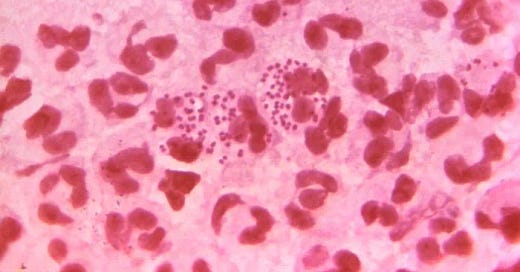According to Alaska health authorities, a woman in her 50s presented to an Anchorage emergency department in respiratory distress and was diagnosed with septic shock and heart failure secondary to endocarditis in the Spring of 2025.
Testing revealed Neisseria gonorrhoeae bacteremia and positive mucosal tests at multiple sites. She did not survive. There was no record of GC testing in the year prior to her illness.
During January–May 2025, eight cases of disseminated gonococcal infection (DGI) were reported in Alaska, all patients were evaluated in emergency departments in Anchorage.
The epidemiologic investigation did not establish connections between any of the DGI cases.
DGI is a rare but severe complication of untreated gonorrhea (GC). It occurs when the sexually transmitted pathogen Neisseria gonorrhoeae invades the bloodstream from infected mucosal sites and can spread to distant sites in the body. DGI classically presents with rash, tendon inflammation, and pain in multiple joints (arthritis-dermatitis syndrome), but may also primarily present as sepsis, single or multiple-joint septic arthritis, polyarthralgia, tenosynovitis, or petechial/pustular skin lesions. Endocarditis and meningitis are rare sequelae. Patients with DGI frequently report no preceding urogenital or other localized gonococcal infection prior to presentation with disseminated infection. Screening of asymptomatic, sexually active patients for GC with prompt treatment for those with GC and their partners, is the mainstay of DGI prevention.





